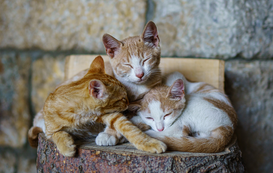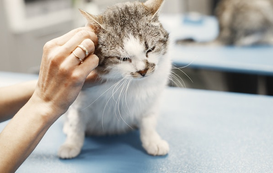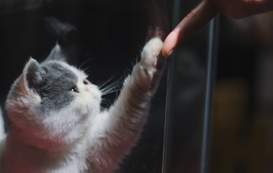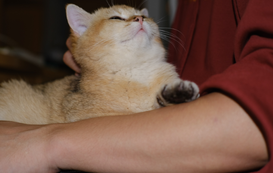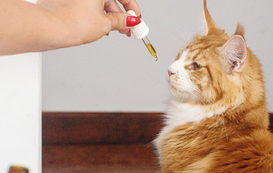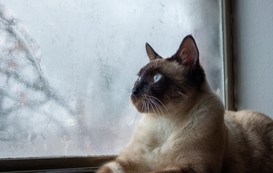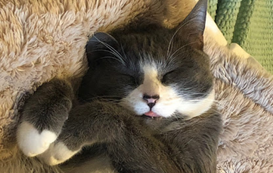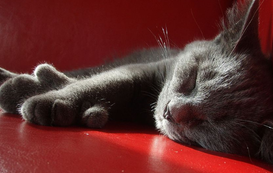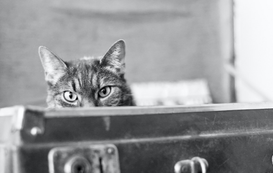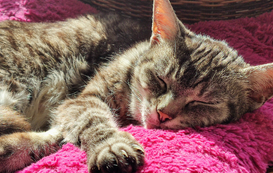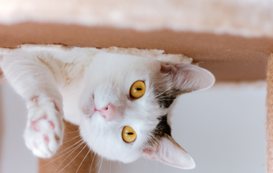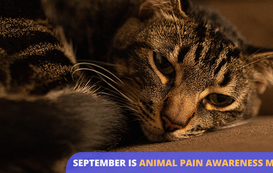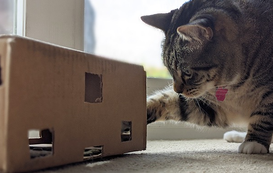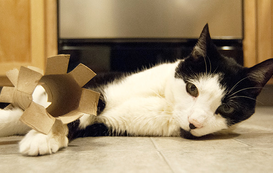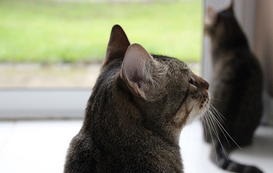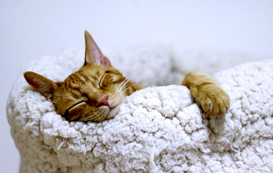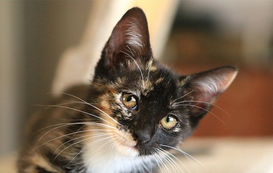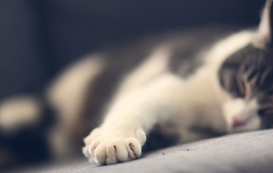- Home
- Cat Sitter Blog
- Cat Behavior
- Help - I Can't Sleep Because of My Cat!
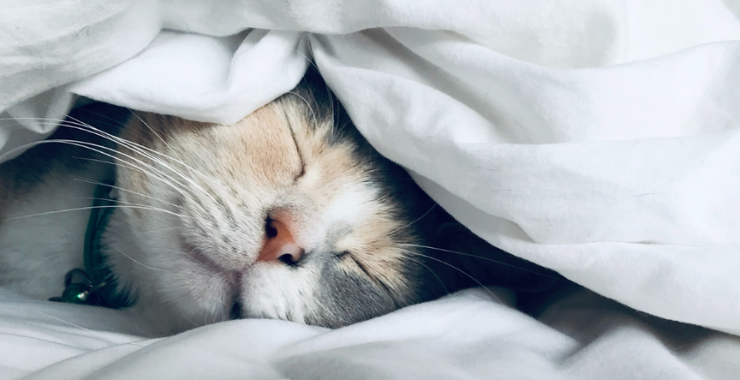

Help - I Can't Sleep Because of My Cat!
Argh.
The hours are ticking by, and you’re still wide awake.
It's not stress. It's not noisy neighbors. It's your beloved kitty!
Cats are crepuscular, which means the time frame for your cat’s highest activity level is the window between nightfall and daybreak. So, that means some level of wakefulness is completely normal. However, over time, cats tend to adapt to their humans’ sleep cycle and mimic them. If your furbaby is unsettled instead of snoozing soundly (for at least a little while during the night), there may be a very simple reason behind their restlessness and a just as simple way to solve it.
Here are a few ways you can help your feline get 40 winks:
Create Consistency for Your Kitty
Cats thrive on consistency in their lives, including routine sleep schedules, set feeding times, and regular play sessions. All of these help to keep their internal body clock in sync. The key is finding what works best for both of you and sticking to it. For instance, if you know your kitty sleeps well after dinner, slowly move their feeding time until it’s closer to your bedtime and avoid deviating from that schedule once you identify the ideal hour. If things are kept consistent, they’ll get cues to calm down and go to sleep at an appropriate time. Keeping bedtime regulated also helps your cat achieve better quality sleep - and when they get better quality sleep, you will get better quality sleep, too.
Score a Sweet (Sleep) Spot
It may seem like cats can sleep just about anywhere - from the back of the couch to the kitchen table to your arm when you’re trying to write a blog post. (!) Even so, providing your cat with a designated bed is a great idea because they will learn the bed is just for them and grow to prefer it. (Then you can more easily train them to go to their bed if you prefer they do not join you in yours.) Kitties can be picky about the material and firmness of their beds, so don't give up on providing one altogether if they don't like the first one you try. On a budget? You can nab a decent bed for around $5 at big-box retailers, or you can make a cat bed of your own. In a pinch, try simply placing some old bedding in a low-sided, large cardboard box (sometimes kitties' favorite things are the least fancy ones!).
Consider Location, Location, Location
If you already have a bed and kitty shies away from it, there could be a simple explanation: Cats generally do not like their beds to be near their litter boxes, air conditioning units/vents, or anything even slightly noisy, such as a refrigerator or a dehumidifier. They also do not like to sleep in places where foot traffic is common, such as the path between your sofa and the kitchen or the route to the bathroom. Instead, put their bed in a quiet, out-of-the-way area where they can relax and feel safe. Bonus tip: Consider placing their bed near French windows or sliding doors if you have them - waking up to a dose of warm morning sunshine will be sheer bliss for your kitty.
Make Your Cat Less of a Couch Potato
Have you skipped your exercise routine for a few days only to find you're suddenly too wired to sleep at night? It works the same way for our feline friends. If they don't exercise enough, they get too wound up to nod off when the time comes. The more exercise your kitty gets, the more likely they will be to drift off at an appropriate time, and the better they will sleep once they do. Wand toys are ideal for using up stored energy and satisfying the chasing instinct, both of which improve kitties' mood. Invest in a few different types of wands or one that offers changeable danglers to keep your kitty engaged and interested. Then make a point to play with them before bedtime every night.
Put the Kibosh on Carpet Clawing
Does your cat tear at the carpeting underneath the door when you shut them out of your bedroom at night? That can be super frustrating, especially if the sound prevents you from falling asleep or causes jarring wake-ups after you finally do. Don't worry - you can train your kitty to stop this behavior. Put some aluminum foil under the door for a few nights. Your kitty will not like the foil's sound or feel when they paw at it, making them less likely to claw at the carpet once you remove the foil.
Call in the Calvary
It is rare but not unheard of for a cat to have a sleep disorder, especially if they are overweight or obese. Other health issues can lead to sleep problems, such as allergies that cause your kitty to wake up to scratch at their skin or respiratory conditions that cause unsettling breathing issues. If you notice your cat is staying awake when they usually wouldn't be or behaving differently during their usual sleep times - such as acting anxious, vocalizing loudly, or pacing nervously - consult your veterinarian so they can eliminate any underlying causes.
The Takeaway
Fur-tunately, most kitties’ sleep issues are easily solved. Otherwise, their behaviors can give you clues as to what's going on. If there's a medical cause at the root of the problem, a timely vet checkup will help you both sleep - and feel - better.
Need to be away from your kitty overnight? You’ll rest easy while your Meowtel sitter provides peace of mind for you and great care for your kitty. Sitters stay for a minimum of 12 hours and up to 14 hours, and overnights include a dinner feeding and breakfast feeding the following day. Learn more here.
Photo created by Kate Stone Matheson on Unsplash




